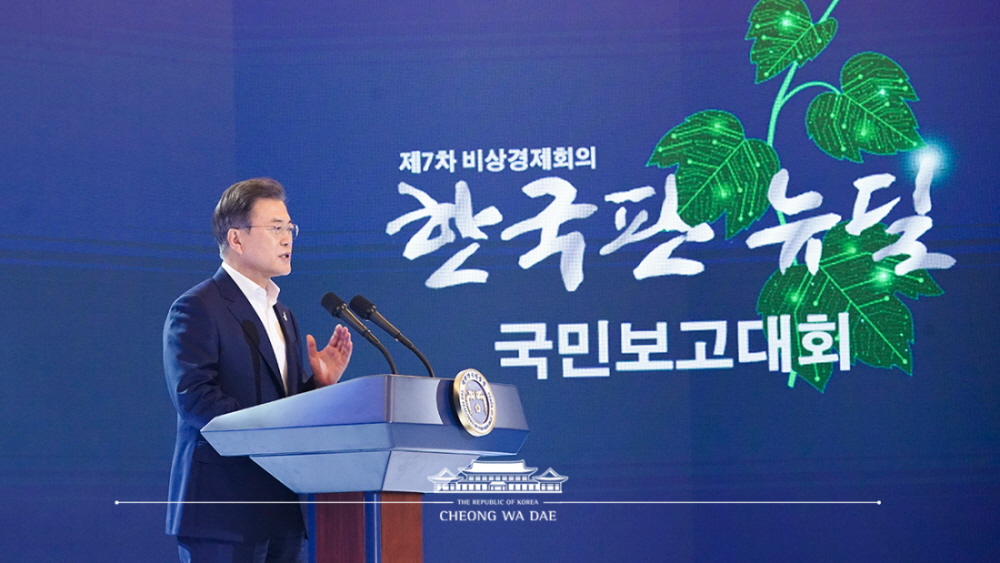이 웹사이트는 제19대 대통령 임기 종료에 따라 대통령기록관이 「대통령기록물 관리에 관한 법률」에 의해 이관받아 서비스하는 대통령기록물입니다. 자료의 열람만 가능하며 수정 · 추가 · 삭제는 불가능합니다.
다만, 「개인정보보호법」에 의하여 개인의 정보를 보호받기 원하시는 분은 관련 내용(요청자, 요청내용, 연락처, 글위치)을 대통령 웹기록물 담당자(044-211-2253)에게 요청해 주시면 신속히 검토하여 조치해 드리겠습니다. 감사합니다.
MEDIA

By Lee Hana
The Korean New Deal plan unveiled by President Moon Jae-in on July 14 is an initiative anchored in part by an eco-friendly strategy of changing Korea from a carbon-reliant economy to one using low levels of carbon over the next five years.
According to the administration's plan announced on July 14, the project's Green New Deal aims to create 659,000 jobs by 2025 by investing KRW 73.4 trillion in areas such as responses to climate change, green infrastructure, renewable energy and green industries.
The first task is to turn public urban areas into green, zero-energy spaces. Public rental housing units, cultural facilities, public and private day care centers, and elementary, middle and high schools will be remodeled or reconstructed as energy-efficient, eco-friendly buildings.
To restore the ecosystem, some 25 smart green cities and numerous city forests will be built and 16 national parks and 25 damaged urban areas restored.
For the second task of raising the use of decentralized low-carbon energy, 1.13 million electric vehicles and 200,000 hydrogen fuel cell cars will enter the market. The number of charging stations will increase, old diesel cars will be swapped for LPG or electric vehicles and proper car disposal will receive support.
For energy conservation, intelligent smart grid systems will be set up and the supply of clean and renewable energies like wind, solar and hydroelectric power expanded.
The final task is to form an ecosystem that supports green industry innovation. For this purpose, 100 smart factories that minimize pollution by reusing industrial heat and waste while using renewable energy will be built. A combined 1,750 clean plants providing technical support for reducing contaminants will also be added.
President Moon on the same day said in a speech at Cheong Wa Dae, "A low-carbon economy is also a global trend. The Green New Deal will not only help improve the quality of our lives by addressing the fine dust and other issues, but also enhance our industrial competitiveness in the face of ever-tightening international environmental regulations. In addition, it will help create a significant number of jobs through the growth of green industries."
***



